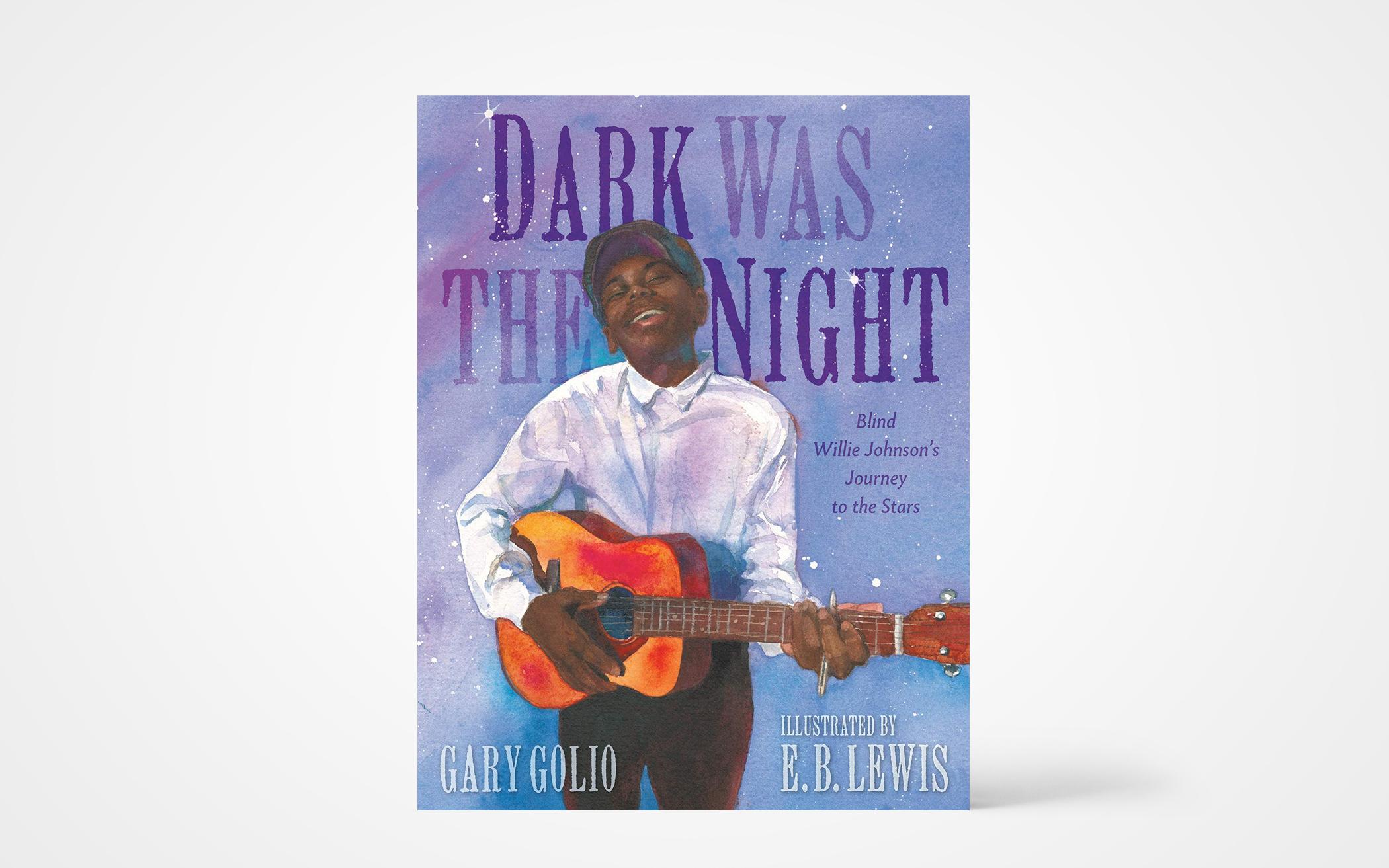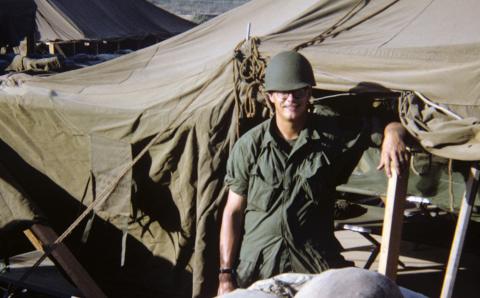Born in Texas in 1897, Willie Johnson grew up to love singing. When his father recognized Willie’s passion, he made his son a cigar box guitar, and Willie learned to play it. A few years later, darkness, metaphorical and literal, descended on Willie’s life—his mother died and, soon after at the age of 7 or 8, Willie became blind.
Author Gary Golio asks, “So how does a blind boy get along? How does he make his way in the world?” The answer: being blind didn’t stop Willie from singing gospel songs in churches and using his voice on street corners. Willie developed a unique way of playing his guitar: he ran the blade of his pocket knife along the steel strings of his instrument, a technique called slide. When he sang, Willie was “back in the light.”
In the following years, Willie traveled by train throughout Texas singing on street corners and in churches in numerous towns. News of his skill spread. One day, a man from a music company encountered Willie, and he was invited to make a record. His voice, Golio poignantly writes, “was the sound of one human being reaching out to all the others, telling them not to be afraid of the dark. After all, if a blind man could see the light….”
In 1977, decades after Willie’s death in 1945, one of Willie’s songs, Dark Was the Night, was chosen to “represent humanity” on the Golden Record, along with music by Bach, Beethoven, Chuck Berry, Louis Armstrong, and others that was carried into space by Voyager I.
Renowned illustrator E. B. Lewis has once again created an incredibly sensitive work of art for young children to complement Gary Golio’s compassionate, stirring narrative. (Nancy Paulsen Books)
About the Author
Sonya VanderVeen Feddema is a freelance writer and a member of Covenant CRC in St. Catharines, Ontario.








